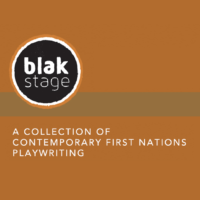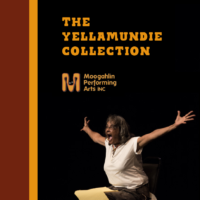The work of Australian Plays and Playwriting Australia, APT’s two predecessor organisations, profoundly affected the shape of the Australian theatre. APT will continue this work.
The work of Australian Plays and Playwriting Australia, APT’s two predecessor organisations, profoundly affected the shape of the Australian theatre. APT will continue this work.
During its 14 years, Playwriting Australia shifted the storytelling landscape in deep and distinct ways. It genuinely worked across the nation, with many development programs run not only in the all the capital cities, but also in many regional and remote areas. Particularly significant were its strategies in developing and lifting up the work of First Nations and Asian Australian writers.
During this time PWA supported, and in some cases seeded, the development of well over 1500 plays, employing many thousands of artists. Many of these plays found full productions in many different parts of the theatre sector.
That full list is huge, but even in the last few years these plays include Stop Girl by Sally Sara, Sunshine Super Girl by Andrea James, Counting and Cracking by S. Shakthidharan, City of Gold by Meyne Wyatt, At What Cost by Nathan Maynard, Miss Peony by Michelle Law, The Man with the Iron Neck by Ursula Yovich and Josh Bond, Single Asian Female by Michelle Law, White Pearl by Anchuli Felica King, Cracked by Barbara Hostalek, Rice by Michele Lee, The Homosexuals or ‘Faggots’ by Declan Greene, Sista Girl by Elena Carapetis & Alexis West, Mortido by Angela Betzien, The Battle of Waterloo by Kylie Coolwell, Winyanboga Yurringa by Andrea James, Australian Graffiti by Disapol Savetsila, Trailer by Vanessa Bates, Gorgon by Elena Carapetis, Lake Disappointment by Luke Mullins and Lachlan Philpott, Golden Blood by Merlynn Tong, The Rasputin Affair by Kate Mulvany, and Big Heart by Patricia Cornelius.
Without the work of PWA, many of these plays might not have made it onto the stage and into the consciousness of audiences.
The publishing, promoting and licensing of many of these works by Australian Plays was key in helping these plays find lives beyond their first productions both here and around the world. Over the last ten years, Australian Plays published around 1,700 plays and sold more than 70,000. It enriched publication with material enhancing appreciation of many plays, including video interviews with playwrights, commissioned essays, and education resources, particularly through its Red Door imprint. Boutique collections gathered together out of print or previously unpublished works from the Nimrod era, as well as new work presented in festivals such as Sydney Festival and Yellamundie.
First Nations
One of PWA’s most successful ongoing programs was its annual First Nations Retreat. Beginning in 2015 (and then called the Indigenous Playwrights Retreat) it was a week-long residential retreat for both emerging and experienced First Nations writers from across Australia held at Bundanon in regional NSW (though, like much else, there was an online version in 2020). The retreats focused on writing, as well as creating a community for sharing work, exploring ideas, taking risks, mentoring and collaborating. The program was self-facilitated by the playwrights.
Retreat participants included Jada Alberts , Tammy Anderson, Kylie Coolwell, Isaac Drandic, Richard Frankland, Gary Hamaguchi, Jane Harrison, Barbara Hostalek, Andrea James, Colin Kinchela, Nathan Maynard, Ellen Van Neerven, Kelton Pell, Melodie Reynolds, Rhoda Roberts, Glenn Shea, Mark Sheppard, Briar Grace Smith, James Taylor, Yvette Walker, Alexis West, and Megan Wilding. Many ongoing relationships and much new work emerged from these retreats.

This wasn’t the only work with First Nations artists. In Broome in 2013, in partnership with Goolarri Media and Yirra Yaakin Theatre Company, there was a special showcase of new plays by local Kimberley writers. For a few years from 2013, Songrites was an intensive playwriting workshop project for mid-career First Nations artists in partnership with the Sydney Opera House. In 2016, the Muru Project ran in partnership with Moogahlin Performing Arts.
The number of First Nations writers engaging with PWA grew from 7% in 2014 to 29% by 2020.
First Nations Collections

The BlakStage collection was first made built in 2013 and continues to grow. It is an international gateway to the best of Australian First Nations playwriting developed under the artistic guidance of leading First Nations writers and theatre-makers. Playscripts are augmented with interviews, videos, photos and production histories as well as cultural protocols and teaching guides. It’s a critical resource.

The Yellamundie Collection brought together plays showcased by Moogahlin Performing Arts through its biennial Yellamundie Festival developing and celebrating the work of First Nations storytellers from across the country. APT will continue this work showcasing the incredible work coming out of the Yellamunde Festival.
Asian Australian Playwrighting
The PWA’s Lotus program 2014-18 – a collaboration with Contemporary Australian Asian Performance and supported by the Girgensohn Foundation – involved more than 70 emerging Asian Australian writers in a carefully building suite of programs. It backed entry-level skills development for participants in Sydney Melbourne and Brisbane, linked playwrights into mentor and development work, and then into theatre companies.
Lotus was a clearly effective intervention into the cultural shape of the Australian theatre. It ultimately led to many high-profile productions: Single Asian Female by Michelle Law at La Boite Theatre Company in Brisbane and Belvoir in Sydney; Australian Graffiti by Disapol Savetsila at Sydney Theatre Company; Blue Bones by Merlynn Tong produced by Playlab at Brisbane Powerhouse; Chi Vu‘s Coloured Aliens at La Mama Theatre in Melbourne; and Katrina Irawati Graham’s Siti Rubiyah presented at Carriageworks as part of the Sydney Festival. Natesha Somasundaram received a two-year residency at the Melbourne Theatre Company and Ngoc Phan received a one-year residency at La Boite. Australian Plays published many of these plays, and the growing catalogue of plays by Asian Australian writers remains available at APT.
The ripples from Lotus continue to resonate, with new plays by these writers and an increasing number of Asian Australian voices being welcomed into theatres.
More broadly, PWA’s collaboration with CALD (Culturally and Linguistically Diverse) writers increased from 7% in 2014 to 28% by 2020.




A Transforming Theatre
The work of Playwriting Australia and Australian Plays contributed to a clear trend towards new Australian stories in our theatres.
Australian work now regularly makes up around two thirds of all theatre presented on larger stages in Australia, with a marked rise in First Nations and culturally and linguistically diverse works. Smaller organisations have always tended to produce much new Australian work, and that trend is also upward.
Australia Council data suggests that from 2011-2018 there was a 140% increase in the presentation of Australian work across multiyear funded organisations, large and small.
It would be wrong to claim that Playwriting Australia and Australian Plays were solely responsible for these trends – the ecology that produced these remarkable results is complex – but there’s no doubt that their impact was direct and catalytic.
The trends are recent, and success into the future cannot be guaranteed. It will take continued, assiduous efforts to ensure that our theatre culture remains conducive to better representation and to Australian stories of all kinds. APT’s existence is key to those efforts.
